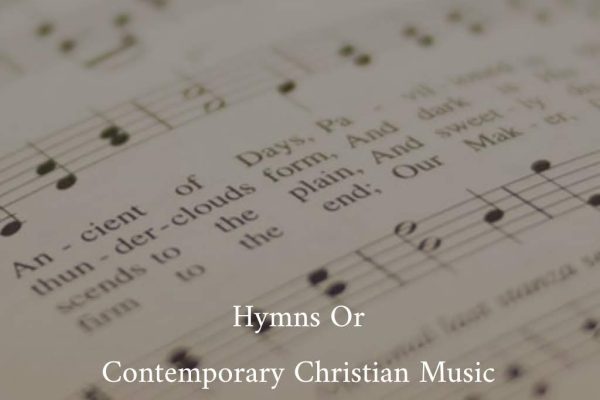If there’s anything the bible (read: Christianity) is most popular for, it must be the 10 commandments – unequivocally. I’d give an honorary mention to Christmas but we still dey drag am with Father Christmas, better known by his diasporan alias, Santa Claus.
However, there is a rather neat link between the commandments and Father Claus, being that God – the ultimate father of Christmas – keeps records of those who have been naughty or nice and does the needful when he comes to town (judgment day). We, in turn, are to be good for goodness sake or if that isn’t enough, the fear of knowing he sees you when you’re sleeping and awake should do the trick.
To us, the commandments are there to give a basis for reward; even the older brother from the parable of ‘The Prodigal Son’ acknowledges this. He meets his father in a huff and essentially says to him “I’ve been good for goodness sake, I’ve followed all your rules, why is my bum of a brother being rewarded? On what basis? SHOW YOUR WORKING (sir)”
If we can be honest with ourselves often, we feel that legalism should pay – you do your time (obey the commandments), you get earthly and heavenly rewards. Simple. We may not be as brash to dictate the order in which we want the blessings to flow but owo, ola and alaafia must be part (with a sprinkling of spouse and instantaneous mind-blowing sex). After all, we’re doing it all for God (and to his glory) – it’s only fair he holds up his end of the deal.
Rules, by their very nature, are restrictive, don’t let anyone hoodwink you; the first step is acceptance. Rules are restrictive. Water is wet and the Island ceases to exist after the first tollgate – these are truths we must come to terms with to lead robust and fulfilling lives. So, the question becomes, are restrictions inherently bad? Are they always a net negative?
If we are honest with ourselves and evaluate objectively, we can admit to the flourishing and positive aspects of restrictions. The 280-character limit on Twitter encourages precision (woe to you, serial thread makers!) – this is good. Traffic lights help manage the flow of traffic – this is good. God’s laws protect us, often from ourselves – this, too, is good.
I think, for the most part, we are happy to abide by commandments that don’t inconvenience us or don’t cost us much. We are also happy to abide by rules we see the immediate benefit of – it’s why people run red lights, they don’t see the (immediate) benefit of waiting or obeying – our wants often cloud our judgment.
If it isn’t that, we think we’re smart and capable enough to handle whatever happens should we ignore the rules. We’ve run our permutations and we believe we are prepared for every and any eventuality. (Awon ti anyhow, we go run am)
Or, we’ve decided that the tangible pleasure, status, power, you-name-it, naughtiness gives, far outweighs the guilt and any ethereal blessing promised to us.

The general sentiment is: “Yes, God has commands and they may be good (for others), but I’m not sure they’re good for me”
This would have been us when Moses was reading the 10 commandments
Whilst rules may seem rather impersonal and generic, we must consider who gives them and our relationship with them. This will allow us to note any biases and preconceptions we may have.
For instance, given my relationship with LASTMA. (Which involves a towed car that was damaged in the process and a lack of accountability / contrition on their part). It would be difficult to see general instruction from an officer as useful. Often my obedience comes from a place of resentment. If I could avoid the consequences, I would simply disobey them.
On reflection, I think it’s fair to say I’ve had a LASTMA-esque relationship with God. Where it feels like his affiliates impounded my destiny from Third Mainland on a Sunday morning. Deflated the tyres and broke the bumper— for no discernable reason. (Yes, everything happens for a reason but this one no too make). After much reasoning and begging, the destiny was released but with a dent. A constant reminder of the incident (and the supposed goodness of God?)
So when I meet people who truly respect and love LASTMA (read: God). I can’t help but view their stories with “it must be nice” (on a good day). “Wait, it’s only a matter of time” (on cynical days). Which brings me back to the position of: ‘obey LASTMA when there’s no choice. If you’re carrying military personnel, fly BRT lane’. (IYKYK)
Essentially, the way we’ve dealt with our life experiences often informs how we see God and the utility of his commands.
If we see God as:
– Narcissistic, his rules will seem inherently unfair and repressive to us.
– Distant and stoic, his rules will become obsolete to us.
– LASTMA-esque, his rules will become punitive and stifling.
– Ethereal and intangible, his rules will become concepts to wax lyrical about rather than obey.
Our view of God is often coloured by our life experiences. When we don’t deal with these issues sufficiently (#JesusAndTherapy), we can develop coping mechanisms that prevent us from experiencing God fully. This can leave us with inaccurate and often harmful impressions of who God is (narcissistic, distant, LASTMA, ethereal). Unearthing and dealing with our life experiences further helps us to see God for who he truly is, believe him when he shows us who he is.
Knowing God is a good God and delighting in God’s goodness are two very different and distinct things. There is an experiential aspect of Christianity we must not snuff out. Head and heart knowledge are required to grow a Christian in their love for God. It is not enough to know of God, we must experience him!
This gives us the liberty to live unapologetically, within the precepts of God’s commands. It may seem paradoxical to speak of liberty and confinement like pap and akara, but it isn’t. Freedom in its crudest sense is an illusion and if we do achieve unbridled freedom, it will be anarchy. People would be permitted to act as they please; the concept of judgment, right, wrong and common sense will seize to exist. This means we have to stand by as people add milk (or salt) to their garri (THE GHETTO).
The very idea that unbridled freedom promotes unparalleled pleasure and human flourishing / development is ill-conceived. Lagosians will bear witness to the freedom traffic lights bring to the roads, especially at T-junctions. The real discussion is if we think we (not God) are better suited to give these restrictions as we are the ones on ground.
As sentient and as self-aware as we are, we fall short. We, as humans, are largely making things up as we go. The best we can do is admit that there are unknown unknowns i.e. there are things we don’t know that we don’t know.
God has revealed himself as omniscient. It will take his spirit to give us the humility to admit our limitations and his grace to strengthen us as we cling to him. This frees us from chasing the fleeting highs of sin and its seduction into eternal death.
Finally, I can list out umpteen reasons why God’s laws are freeing and beneficial to us. But it won’t make a difference until we truly accept that God is real, omniscient and good to all (collectively and individually). Only when we believe and experience him, can we see that everything that stems from him is good (in the present and in eternity) and is beneficial for us (in the present and in eternity).




